Curso
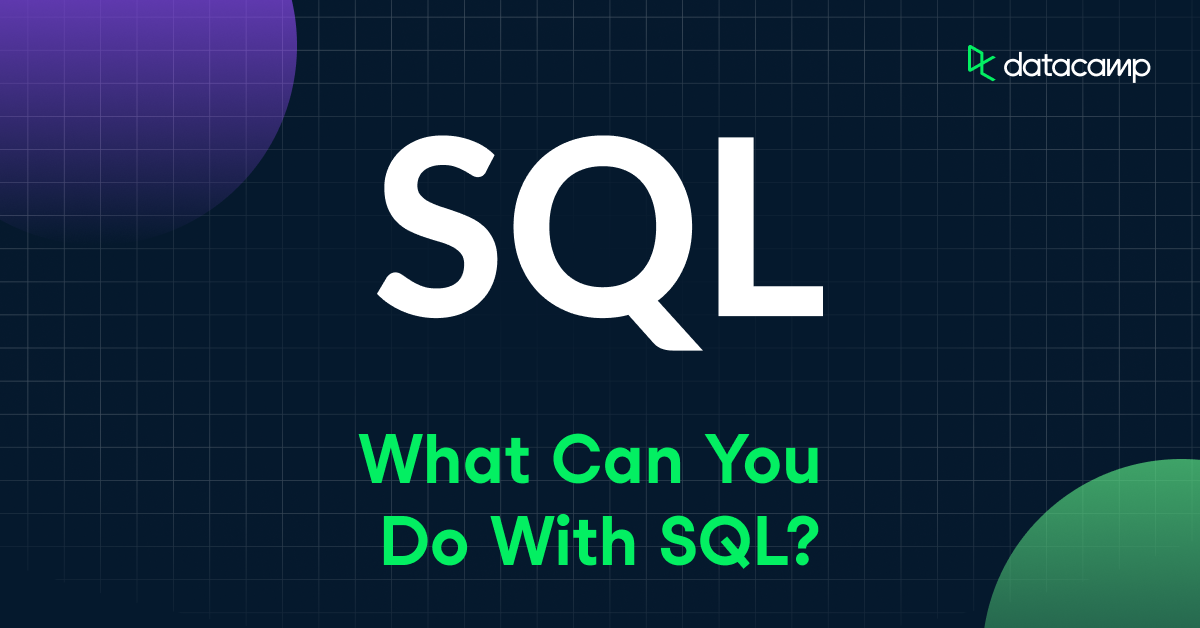
The exponential growth in data worldwide means that businesses and organizations must make sense of all this new information. Thankfully, with tools like SQL, organizing large amounts of data is made relatively easy.
SQL is a powerful language that helps businesses communicate with relational databases. With its help, you can access, retrieve, sort, and update information quickly and easily. As we’ve outlined below, once you master SQL, you can work on an array of interesting projects.
What Can You Do When You Master SQL For Data Science?
1. Explore data in a database
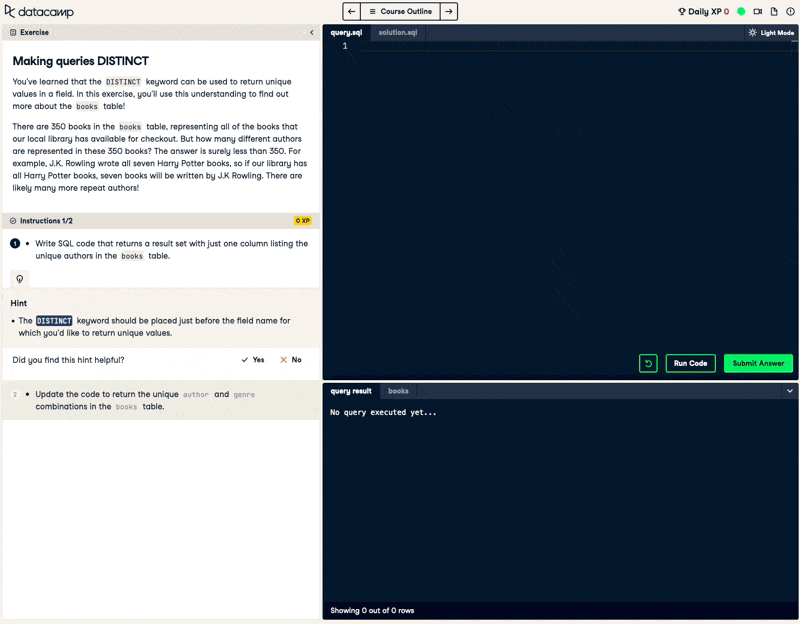
SQL is the programming language used to access data inside databases. Through a simple-yet-powerful syntax, you can "query" the database and extract or calculate on your data.
How to get started
- Course: SQL Foundations
- Course: Intermediate SQL Queries
- Skill Track: SQL Fundamentals
2. Join data from different places
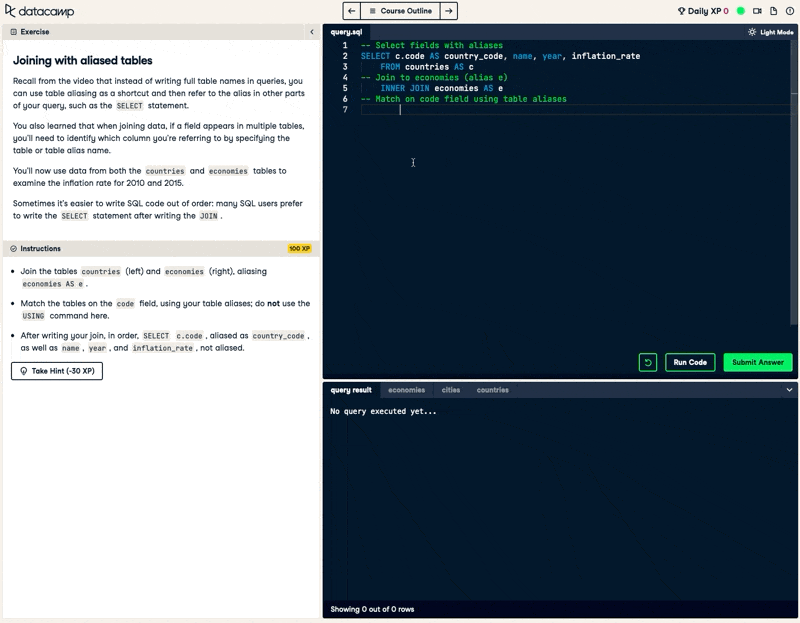
Databases let you manage all your data by storing it in different tables, and SQL lets you join those different tables back together to answer more complex questions. Mastering joins is the key to unlocking the power of SQL.
How to get started
- Course: Joining Data in SQL
3. Make data-driven decisions
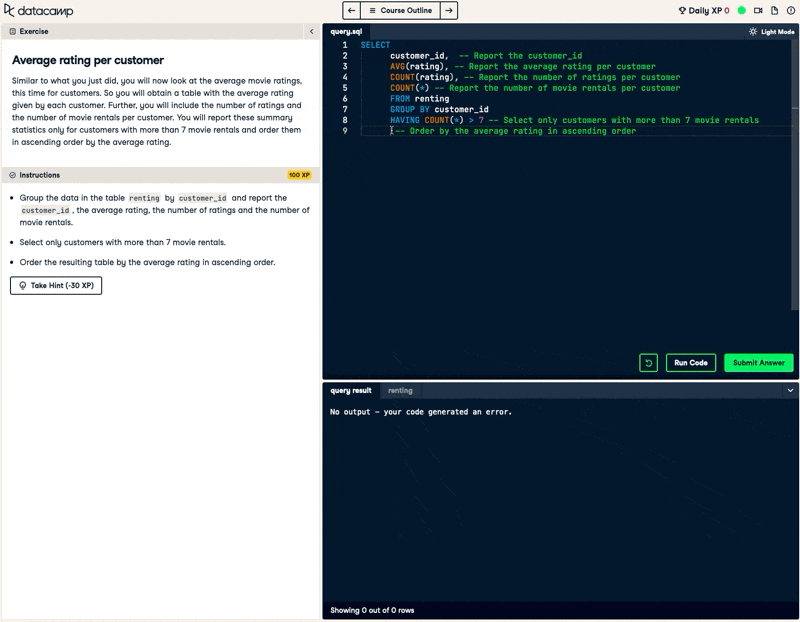
Simply calculating things for the sake of it misses the point of data analysis. SQL lets you unlock value by allowing you to answer questions in a data-driven way. Once you are comfortable with SQL syntax, the next step is to use the language to solve real-world problems.
How to get started
- Course: Data-Driven Decision Making in SQL
- Course: Analyzing Business Data in SQL
- Skill Track: SQL for Business Analysts
4. Create data reports that drive impact
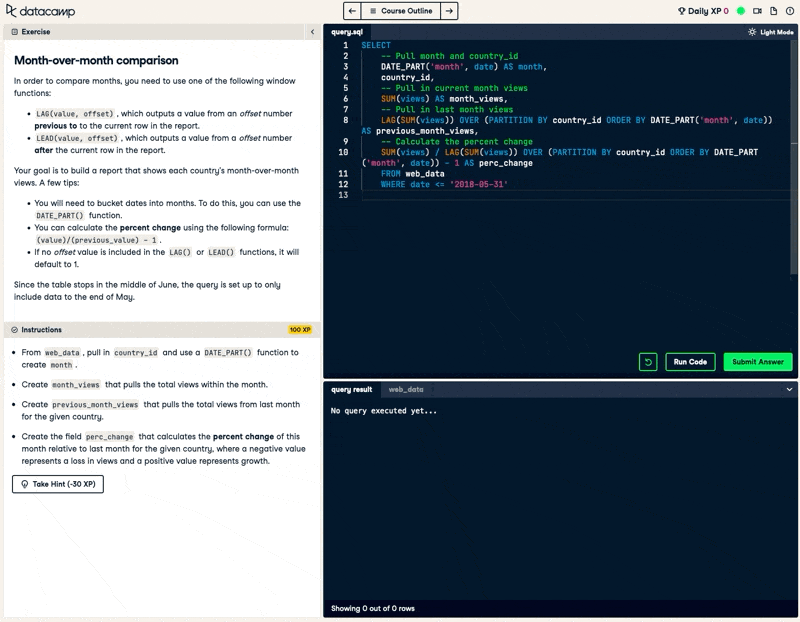
In order to best communicate the results of your analysis, you can structure your outputs in a report for others to read. This will help you drive impact with your analysis, and provide non-technical stakeholders with the information they need to make data-driven decisions.
How to get started
- Course: Reporting in SQL
5. Create and manage databases
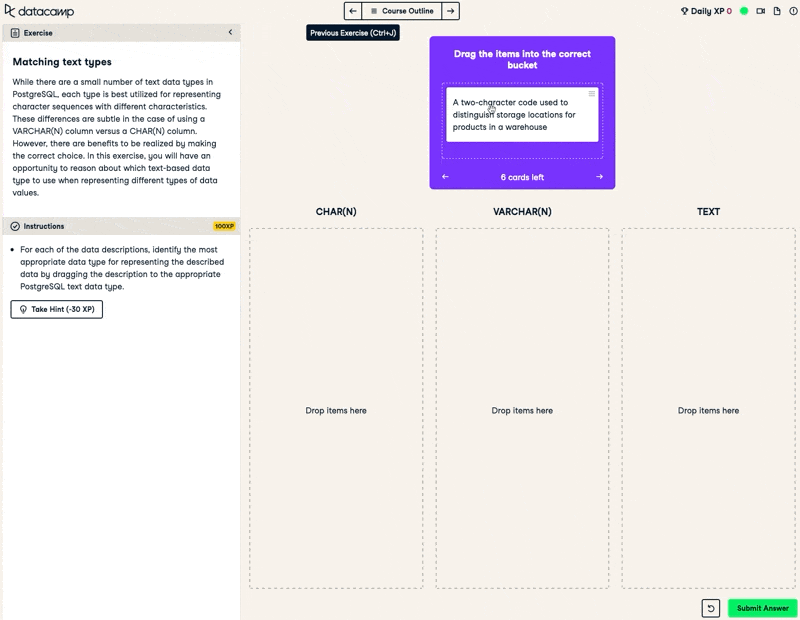
As well as providing a way to analyze data in databases, SQL also lets you create and manage new databases. Understanding how to design, create and administer databases is another step towards SQL mastery.
How to get started
- Course: Creating PostgreSQL Databases
- Course: Database Design
- Skill Track: SQL for Database Administrators



